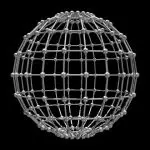Delta-8 THC, a synthetic cannabinoid derived from CBD, offers a milder high compared to Delta-9 THC while providing therapeutic benefits like pain relief and reduced anxiety. Positioned as a natural caffeine replacement, it enhances focus, clarity, and creativity without harsh effects or jitters, appealing to those seeking an alternative to mainstream stimulants. However, its synthetic nature and lack of regulation raise safety concerns, emphasizing the need for consumers to choose reputable sources and third-party lab-tested products.
“Delta-8 THC, a synthetic cannabis-like compound, has emerged as a buzzword in the world of psychoactive substances. This article delves into the enigmatic Delta-8, exploring its unique properties and growing popularity as a potential natural caffeine alternative. We unravel the mysteries of this synthetic compound, its effects on the mind, and its distinction from traditional cannabis. From its rise in the market to safety concerns and consumer experiences, we provide an insightful guide to understanding Delta-8 THC’s place as a novel solution for energy and focus.”
- Understanding Delta-8 THC: Unraveling the Synthetic Compound
- Psychoactive Effects of Delta-8 THC and Its Cannabis Connection
- The Rise of Delta-8 as a Natural Caffeine Alternative
- Safety and Legal Considerations for Consuming Delta-8 THC
- Potential Benefits and Applications Beyond Caffeine Replacement
- Exploring Consumer Experiences and Market Trends
Understanding Delta-8 THC: Unraveling the Synthetic Compound
Delta-8 THC, a synthetic compound derived from cannabis, has gained significant attention as a potential alternative to traditional psychoactive substances like Delta-9 THC. Unlike its more well-known counterpart, Delta-8 offers milder psychoactivity while still providing a range of therapeutic benefits. This makes it an appealing option for those seeking a natural caffeine replacement that provides a clearer head and enhanced focus without the intense high associated with conventional cannabis.
The synthesis of Delta-8 THC involves transforming CBD (Cannabidiol) through specific chemical processes. This transformation allows for a compound that interacts with our body’s endocannabinoid system, leading to potential pain relief, reduced anxiety, and improved sleep quality—all while offering a more subtle cognitive impact. As such, it presents an intriguing alternative for individuals looking to avoid the harsher effects of Delta-9 THC while still reaping the benefits of cannabis-like compounds in a natural, synthetic form.
Psychoactive Effects of Delta-8 THC and Its Cannabis Connection
Delta-8 THC, a synthetic compound derived from cannabis, has garnered attention for its psychoactive effects, mirroring those of its better-known counterpart, Delta-9 THC. While it offers a similar high, Delta-8 is often considered less potent and may provide a smoother experience. This subtle difference makes it an appealing option for those seeking a natural caffeine replacement without the jitters, offering a more relaxed yet invigorated state.
The cannabis connection is evident in Delta-8’s mechanism of action. It interacts with our endocannabinoid system, much like THC does in cannabis plants. This interaction leads to various effects, including altered perception, increased appetite, and potential pain relief. As a synthetic alternative, it offers the benefits of cannabis without the same level of psychological impact, making it a novel option for recreational users and those exploring natural solutions for relaxation and mood enhancement.
The Rise of Delta-8 as a Natural Caffeine Alternative
In recent years, Delta-8 THC has emerged as a popular alternative to traditional caffeine, offering users a unique experience with potential relaxation and sensory enhancement effects. This synthetic compound, derived from hemp, has gained attention for its ability to provide a milder high compared to its more well-known counterpart, Delta-9 THC. As more people seek natural ways to boost their energy and focus, Delta-8 presents itself as a promising natural caffeine replacement option.
The appeal of Delta-8 lies in its subtle yet noticeable effects, often described as a cross between cannabis and caffeine. It can stimulate mental clarity and creativity while potentially offering relaxation benefits similar to those of traditional cannabis. This makes it an attractive choice for individuals looking to reduce reliance on mainstream stimulants like coffee or energy drinks, seeking a more organic approach to staying alert and focused throughout the day.
Safety and Legal Considerations for Consuming Delta-8 THC
When considering Delta-8 THC as a natural caffeine replacement, it’s paramount to approach its consumption with caution and an awareness of safety measures. Unlike traditional cannabis, Delta-8 THC is a synthetic compound, meaning its production involves chemical processes that can introduce potential risks. The absence of robust regulation in some regions means there may be inconsistencies in product quality and purity, which could lead to unforeseen side effects.
Legal considerations further complicate the picture. The legal status of Delta-8 THC varies significantly from one jurisdiction to another, with some places classifying it as a controlled substance and others permitting its sale and use under certain conditions. It’s essential for consumers to familiarize themselves with local laws before purchasing or using any Delta-8 THC products. Always opt for reputable sources that provide third-party lab testing results to ensure product safety and quality, thereby minimizing potential health risks associated with this synthetic cannabis-like compound.
Potential Benefits and Applications Beyond Caffeine Replacement
Delta 8 THC, a synthetic compound derived from cannabis, offers an intriguing alternative to traditional caffeine sources like coffee or energy drinks. Unlike its more well-known counterpart, Delta 9 THC, Delta 8 has lower psychoactivity, providing a milder high with potential therapeutic benefits. One of the most appealing aspects is its ability to serve as a natural caffeine replacement for those seeking an alternative to stimulate their senses without the jittery effects often associated with excessive caffeine intake.
Beyond its role as a natural caffeine replacement, Delta 8 THC has shown promise in various applications. Research suggests it may have anti-inflammatory and analgesic properties, making it a potential aid for managing pain and reducing inflammation. Additionally, studies explore its anxiolytic effects, indicating a possible use in anxiety disorders. These findings open doors to exploring Delta 8’s role in promoting relaxation, enhancing focus, and supporting overall well-being without relying on conventional stimulants.
Exploring Consumer Experiences and Market Trends
In recent years, Delta 8 THC has emerged as a popular synthetic compound within the cannabis market, attracting consumers seeking its psychoactive effects without the intense high associated with Delta 9 THC. Exploring consumer experiences reveals a diverse range of motivations for trying this new substance. Many users report that Delta 8 provides a more subtle yet enjoyable high, often described as a “clear high” that enhances focus and creativity while still allowing for relaxation. It has also found its place as a natural caffeine replacement for those looking to reduce their reliance on traditional stimulants.
Market trends indicate a growing demand for alternative cannabis-like products, particularly among individuals who want the benefits of cannabinoids without the potential negative aspects of conventional cannabis use. As awareness spreads about Delta 8’s unique properties, manufacturers are introducing innovative products, from vapes and edibles to tinctures and topicals. This expanding market offers consumers more choices, catering to various preferences and needs while providing a safer and more accessible option for those interested in exploring the potential benefits of synthetic cannabis-like compounds.
Delta-8 THC, a synthetic cannabis-like compound, has emerged as a novel alternative to traditional natural caffeine sources. With its psychoactive effects similar to cannabis but distinct enough to avoid legal pitfalls, Delta-8 offers a unique proposition in the market for natural caffeine replacements. As consumer trends continue to evolve, further exploration of its benefits and safety profiles is essential to unlock its full potential, ensuring responsible consumption and harnessing its therapeutic applications beyond simple energy enhancement.





